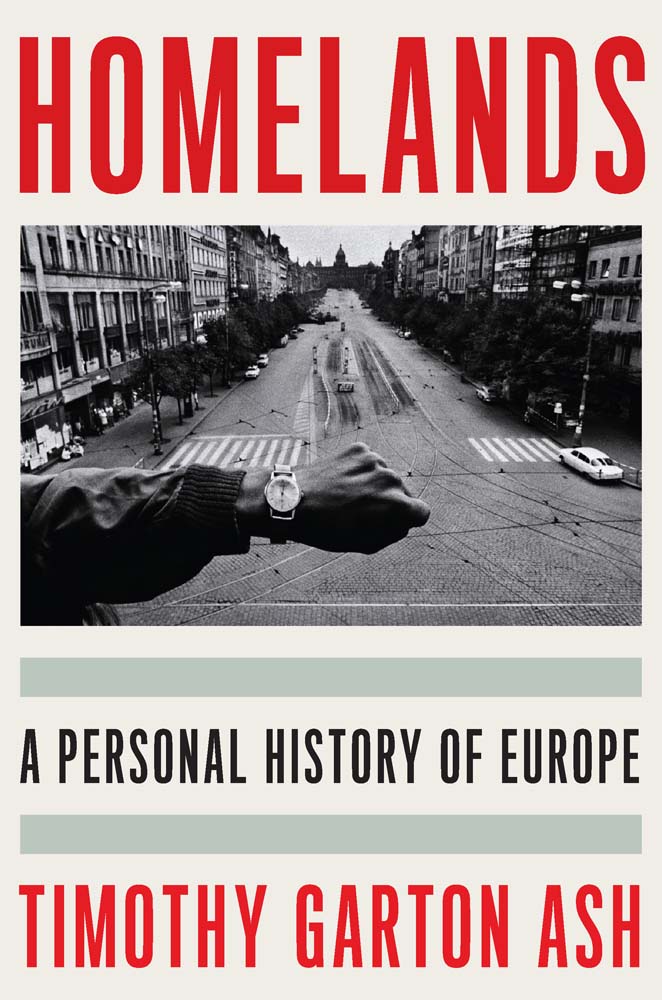
How the World Became Rich: The Historical Origins of Economic Growth
By: Mark Koyama
Format: 240 pages, Paperback
Most humans are significantly richer than their ancestors. Humanity gained nearly all of its wealth…
Want to Read $ 20.00If you liked the business plot in How the World Became Rich: The Historical Origins of Economic Growth by Mark Koyama , here is a list of 7 books like this:

1. A Culture of Growth: The Origins of the Modern Economy
By: Joel Mokyr
Format: 277 pages, Hardcover
During the late eighteenth century, innovations in Europe triggered the Industrial Revolution and t… read more
Want to ReadSimilar categories in Joel Mokyr's A Culture of Growth: The Origins of the Modern Economy book and Mark Koyama's How the World Became Rich: The Historical Origins of Economic Growth
- history
- politics
- nonfiction
- economics
- business

2. Why Nations Fail: The Origins of Power, Prosperity, and Poverty
By: Daron Acemoğlu , James A. Robinson
Format: 529 pages, Hardcover
Brilliant and engagingly written, Why Nations Fail answers the question that has stumped the expert… read more
Want to Read $ 13.99Similar categories in Daron Acemoğlu's Why Nations Fail: The Origins of Power, Prosperity, and Poverty book and Mark Koyama's How the World Became Rich: The Historical Origins of Economic Growth
- social science
- history
- politics
- nonfiction
- society
- sociology
- business
"Central planning was just not good at replacing what the great eighteenth-century economist Adam Smith called the “invisible hand"-Daron Acemoğlu, Why Nations Fail: The Origins of Power, Prosperity, and Poverty
"As mudanças graduais também impediram aventuras em territórios inexplorados. O derrube violento do sistema significa que é necessário construir algo inteiramente novo, em vez daquilo que foi eliminad…"-Daron Acemoğlu, Why Nations Fail: The Origins of Power, Prosperity, and Poverty
"Sem o petróleo, os países do Médio Oriente são também todos pobres. (…) Foi a expansão e consolidação do Império Otomano, e é devido ao legado institucional desse império que o Médio Oriente continua…"-Daron Acemoğlu, Why Nations Fail: The Origins of Power, Prosperity, and Poverty
"A América do Norte tornou-se mais próspera precisamente porque adotou com entusiasmo as tecnologias e os progressos da Revolução Industrial. (…) A desigualdade no mundo atual é, em grande medida, uma…"-Daron Acemoğlu, Why Nations Fail: The Origins of Power, Prosperity, and Poverty
3. Sea Power: The History and Geopolitics of the World's Oceans
By: None
Format: 78 pages, Hardcover
From one of the most admired admirals of his generation--and the only admiral to serve as Supreme A… read more
Want to ReadSimilar categories in None's Sea Power: The History and Geopolitics of the World's Oceans book and Mark Koyama's How the World Became Rich: The Historical Origins of Economic Growth

4. Seeing Like a State: How Certain Schemes to Improve the Human Condition Have Failed
By: James C. Scott
Format: 461 pages, Paperback
Compulsory ujamaa villages in Tanzania, collectivization in Russia, Le Corbusier’s urban planning t… read more
Want to Read $ 18.49Similar categories in James C. Scott's Seeing Like a State: How Certain Schemes to Improve the Human Condition Have Failed book and Mark Koyama's How the World Became Rich: The Historical Origins of Economic Growth
- social science
- history
- nonfiction
- economics
- sociology
"An urban space where the police are the sole agents of order is a very dangerous place."-James C. Scott, Seeing Like a State: How Certain Schemes to Improve the Human Condition Have Failed
"Just as the general design of the city militates against an autonomous public life, so the design of the residential city militates against individuality."-James C. Scott, Seeing Like a State: How Certain Schemes to Improve the Human Condition Have Failed
"The authorized histories of revolutions, as Milovan Djilas points out, “describe the revolution as if it were the fruit of the previously planned action of its leaders."-James C. Scott, Seeing Like a State: How Certain Schemes to Improve the Human Condition Have Failed
"After seizing state power, the victors have a powerful interest in moving the revolution out of the streets and into the museums and schoolbooks as quick as possible, lest the people decide to repeat…"-James C. Scott, Seeing Like a State: How Certain Schemes to Improve the Human Condition Have Failed

5. The Narrow Corridor: States, Societies, and the Fate of Liberty
By: Daron Acemoğlu
Format: 560 pages, Kindle Edition
'A must-read. Acemoglu and Robinson are intellectual heavyweights of the first rank . . . erudite a… read more
Want to Read $ 6.99Similar categories in Daron Acemoğlu's The Narrow Corridor: States, Societies, and the Fate of Liberty book and Mark Koyama's How the World Became Rich: The Historical Origins of Economic Growth
- social science
- history
- politics
- nonfiction
- society
- economics
- sociology
"The only way of achieving durable liberty is to . . . forge the balance necessary for building a Shackled Leviathan. True liberty can flourish neither without a state nor under the yoke of a Despotic…"-Daron Acemoğlu, The Narrow Corridor: States, Societies, and the Fate of Liberty
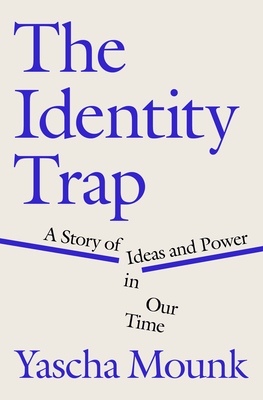
6. The Identity Trap: A Story of Ideas and Power in Our Time
By: Yascha Mounk
Format: 414 pages, Kindle Edition
One of our leading public intellectuals traces the origin of a set of ideas about identity and soci… read more
Want to Read $ 13.99Similar categories in Yascha Mounk's The Identity Trap: A Story of Ideas and Power in Our Time book and Mark Koyama's How the World Became Rich: The Historical Origins of Economic Growth
- audiobook
- history
- politics
- nonfiction
- society
- sociology

7. Who We Are and How We Got Here: Ancient DNA and the New Science of the Human Past
By: David Reich
Format: 335 pages, Hardcover
A groundbreaking book about how ancient DNA has profoundly changed our understanding of human histo… read more
Want to Read $ 14.99Similar categories in David Reich's Who We Are and How We Got Here: Ancient DNA and the New Science of the Human Past book and Mark Koyama's How the World Became Rich: The Historical Origins of Economic Growth
- nonfiction
- history
- audiobook

8. Material World: The Six Raw Materials That Shape Modern Civilization
By: Edmund Conway
Format: 512 pages, Hardcover
Sand, salt, iron, copper, oil, and lithium. These fundamental materials have created empires, razed… read more
Want to ReadSimilar categories in Edmund Conway's Material World: The Six Raw Materials That Shape Modern Civilization book and Mark Koyama's How the World Became Rich: The Historical Origins of Economic Growth
- history
- politics
- nonfiction
- economics
- business
"You can get anything you want from anywhere in the world at a bargain price, but don't [whatever you do] expect to understand how it was made or how it got to you."-Edmund Conway, Material World: The Six Raw Materials That Shape Modern Civilization
"Brothers and sisters,’ said the man. ‘I want to tell you this. The greatest thing on earth is to have the love of God in your heart, and the next greatest thing is to have electricity in your house.’…"-Edmund Conway, Material World: The Six Raw Materials That Shape Modern Civilization
"To say that concrete is everywhere is hardly an exaggeration. Despite the fact that we only began mass producing this mixture of sand, aggregates and cement just over a century ago, there are now mor…"-Edmund Conway, Material World: The Six Raw Materials That Shape Modern Civilization
"A few years ago some geologists sifted through the data [and] estimated that the amount of sand, soil and rock we humans mine and quarry and dredge each year is some 24 times greater than the amount …"-Edmund Conway, Material World: The Six Raw Materials That Shape Modern Civilization

9. Power and Progress: Our Thousand-Year Struggle Over Technology and Prosperity
By: Daron Acemoğlu
Format: None pages, Audiobook
The bestselling co-author of Why Nations Fail and the bestselling co-author of 13 Bankers deliver a… read more
Want to ReadSimilar categories in Daron Acemoğlu's Power and Progress: Our Thousand-Year Struggle Over Technology and Prosperity book and Mark Koyama's How the World Became Rich: The Historical Origins of Economic Growth
- history
- politics
- nonfiction
- economics
- society
- business
- audiobook
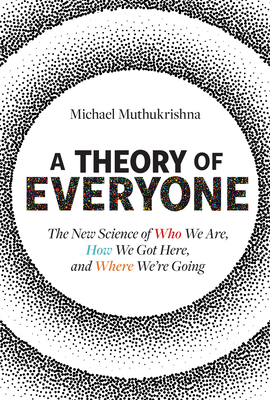
10. A Theory of Everyone: The New Science of Who We Are, How We Got Here, and Where We’re Going
By: Michael Muthukrishna
Format: 448 pages, Hardcover
A blueprint for a better future that offers a unified theory of human behavior, culture, and societ… read more
Want to Read $ 19.99Similar categories in Michael Muthukrishna's A Theory of Everyone: The New Science of Who We Are, How We Got Here, and Where We’re Going book and Mark Koyama's How the World Became Rich: The Historical Origins of Economic Growth
- history
- nonfiction
- economics
- society
- sociology

11. Good Economics for Hard Times: Better Answers to Our Biggest Problems
By: Abhijit V. Banerjee
Format: 417 pages, Kindle Edition
Figuring out how to deal with today's critical economic problems is perhaps the great challenge of … read more
Want to Read $ 14.99Similar categories in Abhijit V. Banerjee's Good Economics for Hard Times: Better Answers to Our Biggest Problems book and Mark Koyama's How the World Became Rich: The Historical Origins of Economic Growth
- audiobook
- politics
- nonfiction
- economics
- society
- business
- sociology
"The bottom line is that, much as in rich countries, we have no accepted recipe for how to make growth happen in poor countries. Even the experts seem to have accepted this. In 2006, the World Bank as…"-Abhijit V. Banerjee, Good Economics for Hard Times: Better Answers to Our Biggest Problems

12. The WEIRDest People in the World: How the West Became Psychologically Peculiar and Particularly Prosperous
By: Joseph Henrich
Format: 706 pages, Kindle Edition
A New York Times Notable Book of 2020A Bloomberg Best Non-Fiction Book of 2020A Behavioral Scientis… read more
Want to Read $ 12.99Similar categories in Joseph Henrich's The WEIRDest People in the World: How the West Became Psychologically Peculiar and Particularly Prosperous book and Mark Koyama's How the World Became Rich: The Historical Origins of Economic Growth
- history
- politics
- nonfiction
- society
- economics
- sociology
"The assembly of the innovation engine that propelled the Industrial Revolution becomes easier to see once we recognize how the psychology of premodern Europeans had been quietly evolving in the backg…"-Joseph Henrich, The WEIRDest People in the World: How the West Became Psychologically Peculiar and Particularly Prosperous
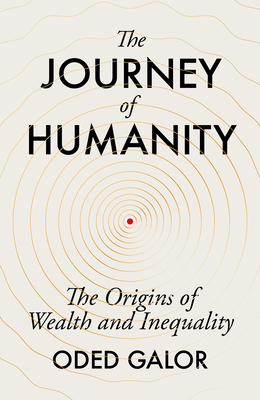
13. The Journey of Humanity: The Origins of Wealth and Inequality
By: Oded Galor
Format: 304 pages, Hardcover
A landmark, radically uplifting account of our species' progress from one of the world's pre-eminen… read more
Want to Read $ 10.99Similar categories in Oded Galor's The Journey of Humanity: The Origins of Wealth and Inequality book and Mark Koyama's How the World Became Rich: The Historical Origins of Economic Growth
- history
- politics
- nonfiction
- society
- economics
- sociology
- audiobook
"У 1579-му міська рада Гданська наказала непомітно втопити винахідника нового верстата для плетіння тасьми, який загрожував традиційним виробникам цієї продукції."-Oded Galor, The Journey of Humanity: The Origins of Wealth and Inequality
"У 1958 році американський політолог Едвард Бенфілд сформулював впливову теорію, відповідно до якої низький рівень економічного розвитку в цьому регіоні пов’язаний з міцними родинними зв’язками. За йо…"-Oded Galor, The Journey of Humanity: The Origins of Wealth and Inequality
"Дуже часто рекомендації західних держав щодо розвитку політики в бідніших країнах мало відрізняються від «ритуалів відновлення» в жителів острова Танна. Вони передбачають зовнішню імітацію інститутів…"-Oded Galor, The Journey of Humanity: The Origins of Wealth and Inequality
"Після Великого повстання проти Римської імперії, яке спалахнуло в Юдеї 66 року н. е., римляни знищили Єрусалим і Єрусалимський храм. Кілька основних течій юдаїзму зникло, зокрема садукеї (священники …"-Oded Galor, The Journey of Humanity: The Origins of Wealth and Inequality

14. When the Heavens Went on Sale: The Misfits and Geniuses Racing to Put Space Within Reach
By: Ashlee Vance
Format: 528 pages, Hardcover
An Instant New York Times Bestseller A momentous look at the private companies building a revolu… read more
Want to Read $ 12.99Similar categories in Ashlee Vance's When the Heavens Went on Sale: The Misfits and Geniuses Racing to Put Space Within Reach book and Mark Koyama's How the World Became Rich: The Historical Origins of Economic Growth
- history
- nonfiction
- economics
- business
- audiobook

15. Why We Fight: The Roots of War and the Paths to Peace
By: Christopher Blattman
Format: 400 pages, Hardcover
“ Why We Fight reflects Blattman’s expertise in economics, political science, and history… Blattma… read more
Want to Read $ 8.99Similar categories in Christopher Blattman's Why We Fight: The Roots of War and the Paths to Peace book and Mark Koyama's How the World Became Rich: The Historical Origins of Economic Growth
- history
- politics
- nonfiction
- society
- economics
- sociology

16. How the World Became Rich: The Historical Origins of Economic Growth
By: Mark Koyama
Format: 240 pages, Paperback
Most humans are significantly richer than their ancestors. Humanity gained nearly all of its wealth… read more
Want to Read $ 20.00Similar categories in Mark Koyama's How the World Became Rich: The Historical Origins of Economic Growth book and Mark Koyama's How the World Became Rich: The Historical Origins of Economic Growth
- social science
- history
- politics
- academic
- nonfiction
- society
- economics
- sociology
- business
- audiobook
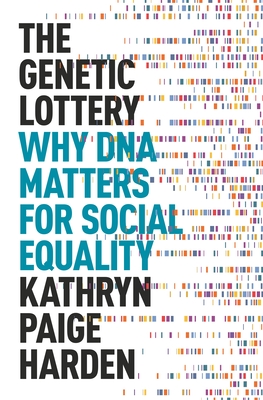
17. The Genetic Lottery: Why DNA Matters for Social Equality
By: Kathryn Paige Harden
Format: 312 pages, Hardcover
A Virginia Living Favorite Book (2021) A provocative and timely case for how the science of gene… read more
Want to Read $ 9.99Similar categories in Kathryn Paige Harden's The Genetic Lottery: Why DNA Matters for Social Equality book and Mark Koyama's How the World Became Rich: The Historical Origins of Economic Growth
- audiobook
- politics
- nonfiction
- society
- sociology
"We are living in a golden age of genetic research, with new technologies permitting the easy collection of genetic data from millions upon millions of people and the rapid development of new statisti…"-Kathryn Paige Harden, The Genetic Lottery: Why DNA Matters for Social Equality

18. Spin Dictators: The Changing Face of Tyranny in the 21st Century
By: Sergei Guriev
Format: 360 pages, Hardcover
How a new breed of dictators holds power by manipulating information and faking democracy Hitler… read more
Want to Read $ 13.17Similar categories in Sergei Guriev's Spin Dictators: The Changing Face of Tyranny in the 21st Century book and Mark Koyama's How the World Became Rich: The Historical Origins of Economic Growth
- history
- politics
- nonfiction
- economics
- society
- audiobook
"As countries became postindustrial, educated, and internationally linked, their rulers had to adapt—or, at least, pretend to. Amid the third wave of democracy, liberal norms spread worldwide. The for…"-Sergei Guriev, Spin Dictators: The Changing Face of Tyranny in the 21st Century
"These four changes—in the nature of work, education, social values, and communication technology—make it harder for dictators to dominate citizens in the old way. Harsh laws and bureaucratic regulati…"-Sergei Guriev, Spin Dictators: The Changing Face of Tyranny in the 21st Century
"These four changes—in the nature of work, education, social values, and communication technology—make it harder for dictators to dominate citizens in the old way. Harsh laws and bureaucratic regulati…"-Sergei Guriev, Spin Dictators: The Changing Face of Tyranny in the 21st Century

